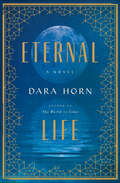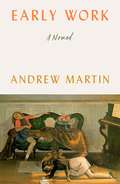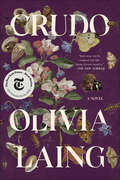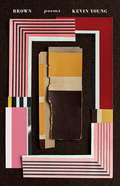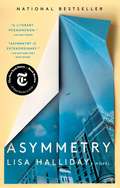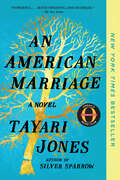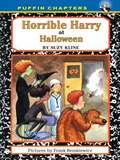Special Collections
100 Notable Books of 2018
- Table View
- List View
Eternal Life
by Dara HornA New York Times Notable Book A Booklist Editors’ Choice A Chicago Public Library Best Book of the Year What would it really mean to live forever?Rachel is a woman with a problem: she can’t die. Her recent troubles—widowhood, a failing business, an unemployed middle-aged son—are only the latest in a litany spanning dozens of countries, scores of marriages, and hundreds of children. In the 2,000 years since she made a spiritual bargain to save the life of her first son back in Roman-occupied Jerusalem, she’s tried everything to free herself, and only one other person in the world understands: a man she once loved passionately, who has been stalking her through the centuries, convinced they belong together forever.But as the twenty-first century begins and her children and grandchildren—consumed with immortality in their own ways, from the frontiers of digital currency to genetic engineering—develop new technologies that could change her fate and theirs, Rachel knows she must find a way out.Gripping, hilarious, and profoundly moving, Eternal Life celebrates the bonds between generations, the power of faith, the purpose of death, and the reasons for being alive.
Early Work
by Andrew MartinFor young writers of a certain temperament—if they haven’t had such notions beaten out of them by MFA programs and the Internet—the delusion persists that great writing must be sought in what W. B. Yeats once called the “foul rag and bone shop of the heart.” That’s where Peter Cunningham has been looking for inspiration for his novel—that is, when he isn’t teaching at the local women’s prison, walking his dog, getting high, and wondering whether it’s time to tie the knot with his college girlfriend, a medical student whose night shifts have become a standing rebuke to his own lack of direction.
When Peter meets Leslie, a sexual adventurer taking a break from her fiancé, he gets a glimpse of what he wishes and imagines himself to be: a writer of talent and nerve. Her rag-and-bone shop may be as squalid as his own, but at least she knows her way around the shelves. Over the course of a Virginia summer, their charged, increasingly intimate friendship opens the door to difficult questions about love and literary ambition.
With a keen irony reminiscent of Sam Lipsyte or Lorrie Moore, and a romantic streak as wide as Roberto Bolaño’s, Andrew Martin’s Early Work marks the debut of a writer as funny and attentive as any novelist of his generation.
Crudo
by Olivia LaingA New York Times Notable, The New Yorker, Washington Post, NPR, Guardian, Esquire, and Bustle Best Book of 2018 “Love may not be original, but this funny, fervent novel is.”—The New Yorker It’s the summer of 2017 and Kathy is getting married. Meanwhile, fascism is on the rise, truth is dead, the planet is heating up, and Trump is tweeting the world ever closer to nuclear war. In Crudo, her first work of fiction, Olivia Laing radically rewires the novel with a fierce, compassionate account of learning to love when the end of the world seems in sight.
Cherry
by Nico WalkerJesus' Son meets Reservoir Dogs in a breakneck-paced debut novel about love, war, bank robberies, and heroin.Cleveland, 2003. A young man is just a college freshman when he meets Emily. They share a passion for Edward Albee and Ecstasy and fall hard and fast in love. But soon Emily has to move home to Elba, New York and he flunks out of school and joins the Army.
Desperate to keep their relationship alive, they marry before he ships out to Iraq. But as an Army medic, he is unprepared for the grisly reality that awaits him. His fellow soldiers smoke; they huff computer duster; they take painkillers; they watch porn. And many of them die. He and Emily try to make their long-distance marriage work, but when he returns from Iraq, his PTSD is profound, and the drugs on the street have changed. The opioid crisis is beginning to swallow up the Midwest.
Soon he is hooked on heroin, and so is Emily. They attempt a normal life, but with their money drying up, he turns to the one thing he thinks he could be really good at--robbing banks.Hammered out on a typewriter, Cherry marks the arrival of a raw, bleakly hilarious, and surprisingly poignant voice straight from the dark heart of America.
A New York Times Bestseller
Brown
by Kevin YoungJames Brown. John Brown's raid. Brown v. the Topeka Board of Ed. The prize-winning author of Blue Laws meditates on all things "brown" in this powerful new collection.
Divided into "Home Recordings" and "Field Recordings," Brown speaks to the way personal experience is shaped by culture, while culture is forever affected by the personal, recalling a black Kansas boyhood to comment on our times. From "History"--a song of Kansas high-school fixture Mr. W., who gave his students "the Sixties / minus Malcolm X, or Watts, / barely a march on Washington"--to "Money Road," a sobering pilgrimage to the site of Emmett Till's lynching, the poems engage place and the past and their intertwined power.
These thirty-two taut poems and poetic sequences, including an oratorio based on Mississippi "barkeep, activist, waiter" Booker Wright that was performed at Carnegie Hall and the vibrant sonnet cycle "De La Soul Is Dead," about the days when hip-hop was growing up ("we were black then, not yet / African American"), remind us that blackness and brownness tell an ongoing story. A testament to Young's own--and our collective--experience, Brown offers beautiful, sustained harmonies from a poet whose wisdom deepens with time.
Asymmetry
by Lisa HallidayA TIME and NEW YORK TIMES TOP 10 BOOK of the YEAR * New York Times Notable Book and Times Critic&’s Top Book of 2018 NAMED ONE OF THE BEST BOOKS OF 2018 BY * Elle * Bustle * Kirkus Reviews * Lit Hub* NPR * O, The Oprah Magazine * Shelf Awareness The bestselling and critically acclaimed debut novel by Lisa Halliday, hailed as &“extraordinary&” by The New York Times, &“a brilliant and complex examination of power dynamics in love and war&” by The Wall Street Journal, and &“a literary phenomenon&” by The New Yorker.Told in three distinct and uniquely compelling sections, Asymmetry explores the imbalances that spark and sustain many of our most dramatic human relations: inequities in age, power, talent, wealth, fame, geography, and justice. The first section, &“Folly,&” tells the story of Alice, a young American editor, and her relationship with the famous and much older writer Ezra Blazer. A tender and exquisite account of an unexpected romance that takes place in New York during the early years of the Iraq War, &“Folly&” also suggests an aspiring novelist&’s coming-of-age. By contrast, &“Madness&” is narrated by Amar, an Iraqi-American man who, on his way to visit his brother in Kurdistan, is detained by immigration officers and spends the last weekend of 2008 in a holding room in Heathrow. These two seemingly disparate stories gain resonance as their perspectives interact and overlap, with yet new implications for their relationship revealed in an unexpected coda. A stunning debut from a rising literary star, Asymmetry is &“a transgressive roman a clef, a novel of ideas, and a politically engaged work of metafiction&” (The New York Times Book Review), and a &“masterpiece&” in the original sense of the word&” (The Atlantic). Lisa Halliday&’s novel will captivate any reader with while also posing arresting questions about the very nature of fiction itself.
An American Marriage (Oprah's Book Club)
by Tayari JonesA NEW YORK TIMES AND WASHINGTON POST NOTABLE BOOK A 2018 BEST OF THE YEAR SELECTION OF NPR * TIME * BUSTLE * O, THE OPRAH MAGAZINE * THE DALLAS MORNING NEWS * AMAZON.COM OPRAH&’S BOOK CLUB 2018 SELECTION LONGLISTED FOR THE 2018 NATIONAL BOOK AWARD FOR FICTION&“A moving portrayal of the effects of a wrongful conviction on a young African-American couple.&” —Barack Obama &“Haunting . . . Beautifully written.&” —The New York Times Book Review &“Brilliant and heartbreaking . . . Unforgettable.&” —USA Today &“A tense and timely love story . . . Packed with brave questions about race and class.&” —People &“Compelling.&” —The Washington Post &“Epic . . . Transcendent . . . Triumphant.&” —Elle Newlyweds Celestial and Roy are the embodiment of both the American Dream and the New South. He is a young executive, and she is an artist on the brink of an exciting career. But as they settle into the routine of their life together, they are ripped apart by circumstances neither could have imagined. Roy is arrested and sentenced to twelve years for a crime Celestial knows he didn&’t commit. Though fiercely independent, Celestial finds herself bereft and unmoored, taking comfort in Andre, her childhood friend, and best man at their wedding. As Roy&’s time in prison passes, she is unable to hold on to the love that has been her center. After five years, Roy&’s conviction is suddenly overturned, and he returns to Atlanta ready to resume their life together. This stirring love story is a profoundly insightful look into the hearts and minds of three people who are at once bound and separated by forces beyond their control. An American Marriage is a masterpiece of storytelling, an intimate look deep into the souls of people who must reckon with the past while moving forward—with hope and pain—into the future.
Horrible Harry at Halloween
by Suzy KlineHorrible Harry and his classmates all love Halloween. Everyone wears a costume to school-even Miss Mackle. Every Halloween Harry shocks his classmates with his scary costume. In kindergarten he was a bloody Count Dracula, in first grade he was the Loch Ness Monster, and in second grade he was a slithering snake. So everyone in Room 3B can't wait to see what Harry is going to be this year-and they're in for a really big surprise! "Fans will welcome the characters . . . #and the# classroom, where learning is as much fun as the tricks and treats!" (Booklist) .
